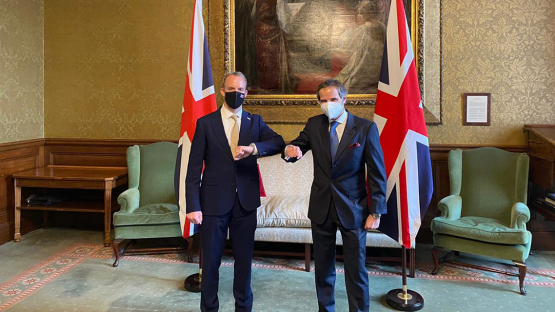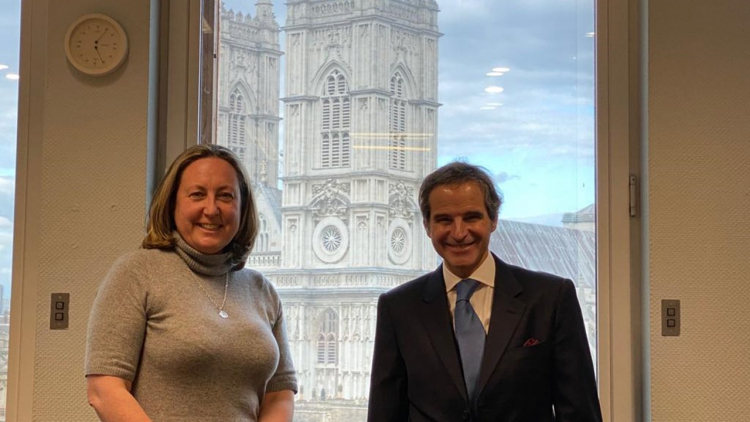The United Kingdom is a steadfast partner of the IAEA in advancing nuclear safeguards and the use of peaceful nuclear applications globally, IAEA Director General Rafael Mariano Grossi told his hosts in London today. Main topics discussed during his two-day visit include the role of nuclear technologies in combatting climate change and ongoing challenges to the global nuclear non-proliferation regime.
At his meeting with the Foreign, Commonwealth and Development Secretary Dominic Raab on Tuesday afternoon, Mr Grossi thanked the UK – which will host this year’s global climate summit in November – for its leadership in upcoming climate negotiations and for its support to the IAEA nuclear application laboratories in Seibersdorf, Austria.
Earlier this month, the UK government announced it would contribute GBP 1.5 million (EUR 1.7 million) to the upcoming phase of the renovation of the laboratories. This will help in modernizing and better equipping IAEA laboratories that conduct research on human and zoonotic diseases, cancer treatment and adapting to climate change through smart agriculture.
“Without the generous support of countries like the UK, the IAEA would be hard-pressed to carry out its wide mandate in promoting the peaceful, safe and secure use of nuclear technologies worldwide,” Mr Grossi said.
Mr Grossi and Mr Raab discussed a range of global issues, including nuclear safeguards and the JCPOA — the Joint Comprehensive Plan of Action agreement commonly referred to as the ‘Iran nuclear deal’. Yesterday, Mr Grossi announced that he had agreed with Iran to extend by one month the necessary verification and monitoring activities carried out by the Agency in the country, while negotiations between the parties to the JCPOA continue.








